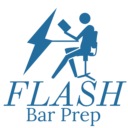FAQ - What is the Uniform Bar Examination (UBE)?
As mentioned in my previous FAQ, when it comes to qualifying as a lawyer in the United States, each state has its own admission and regulation requirements. However, a significant number of states, including New York, utilize a standardized examination called the Uniform Bar Examination (UBE).
The UBE is a standardized bar exam developed and administered by the National Conference of Bar Examiners (NCBE). NCBE writes UBE questions from a national perspective. States that adopt the UBE model administer the same set of exam questions and use a standardized marking scheme.
The significance is that, in order to pass the UBE, you don’t really need to know any state-specific law. Even if you are sitting for the UBE in New York State, you are not being tested on state-specific law in New York.
Rather, UBE tests your knowledge on ‘Federal Law’ and ‘State Law’ that are commonly accepted by the majority of the States. Minority position of state law is generally irrelevant.
New York State, like many others, has adopted the UBE model, delegating the responsibility of exam preparation to the NCBE. A number of possible reasons behind are as follows:
1. Enhanced Uniformity and Standardization: With the same set of exam questions administered across UBE jurisdictions, candidates face consistent evaluation of their legal knowledge and skills.
2. Portability of UBE Scores: One of the primary advantages of the UBE is the portability of scores. New York State recognizes that UBE scores obtained in other jurisdictions are transferable. This means that candidates who pass the UBE in one state can potentially use their scores to seek admission in New York or another state.
3. Streamlined Examination Process: Delegating the exam preparation work to the NCBE relieves New York State of the burden of developing an entirely new set of exam questions.
The UBE consists of three main components: (1) Multistate Bar Examination (MBE); (2) Multistate Essay Examination (MEE); and (3) Multistate Performance Test (MPT).
Each component of the UBE is a closed-book exam, meaning candidates must rely solely on their knowledge and understanding of the law. No reference materials are allowed during the exam.
The MBE consists of 200 multiple-choice questions, split into 2 sessions of 100 questions each. Each session is 3 hours long, allowing candidates approximately 1.8 minutes per question to read, analyze, and respond.
The MBE evaluates candidates’ knowledge and understanding of fundamental legal principles across the following 7 core subjects:
– Constitutional Law
– Evidence
– Civil Procedure
– Criminal Law and Procedure
– Tort
– Contract
– Real Property
The MEE consists of 6 essay questions to be completed within a 3-hour session allowing candidates approximately 30 minutes to answer each question and articulate their analysis in a well-structured written format.
The MEE evaluates candidates’ knowledge and understanding of fundamental legal principles across 12 subjects, including:
– All the 7 core subjects in the MBE
– Conflict of Laws
– Trusts and Estates
– Secured Transactions
– Family Law
– Business Associations
The MPT is a unique component of the bar examination that assesses candidates’ ability to perform practical lawyering tasks. It is meant to mirror the tasks performed by entry-level attorneys.
The MPT presents candidates with realistic legal scenarios that simulate real-world lawyering assignments, and requires them to complete 2 tasks within 3 hours. These tasks can include drafting memos, client letters, persuasive briefs, opinion letters, contracts, or other documents typically encountered in legal practice.
Candidates are provided with a “File” and a “Library” containing various sources of legal authority such as statutes, cases, regulations, and secondary sources. The File includes factual information related to the scenario, while the Library contains all the legal resources you need for research and analysis In other words, supposedly you don’t need to know any law in real life – all required laws are included in the fictitious Library.
